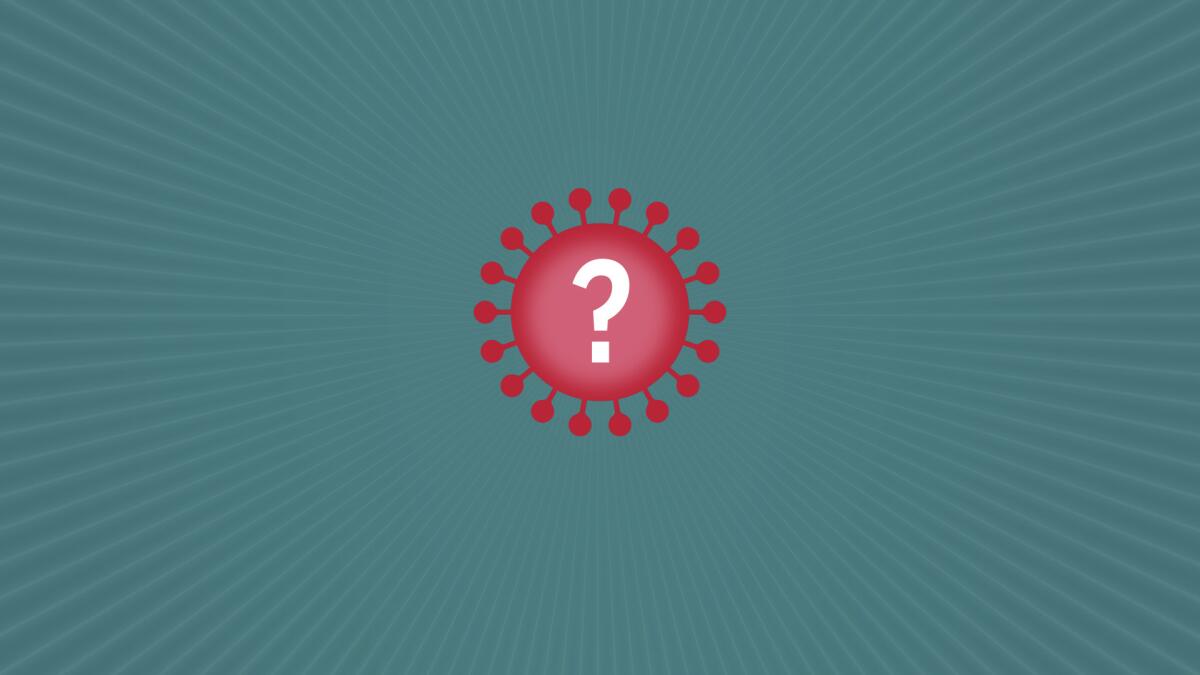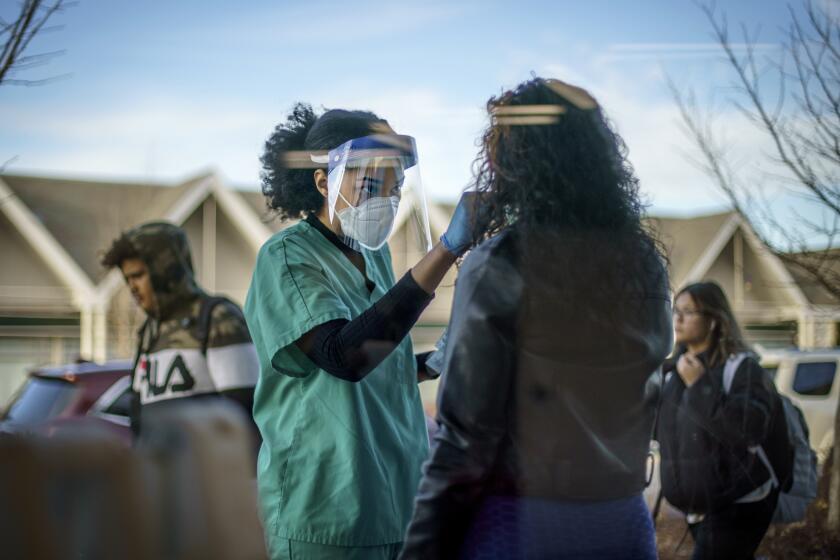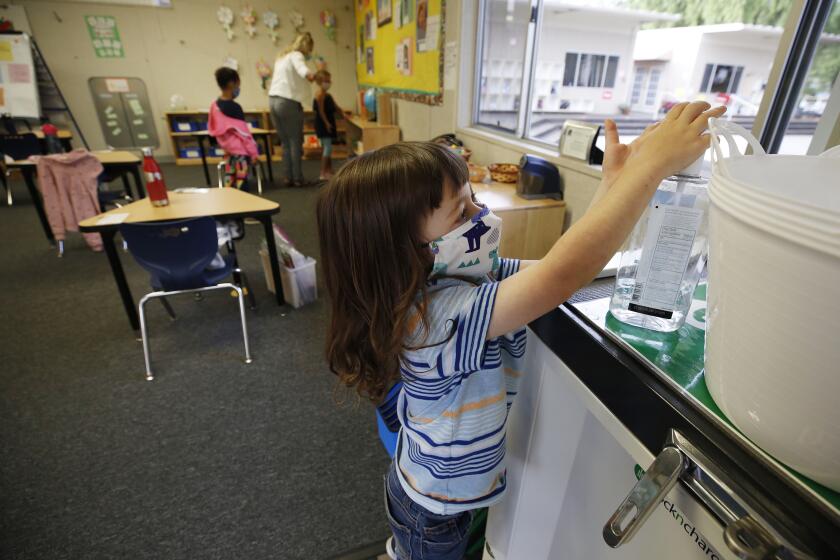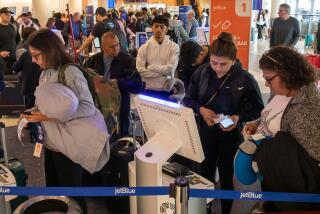When am I contagious if infected with Omicron?

- Share via
If I’m infected with Omicron, when am I contagious?
The answer to this question is not yet clear, but some early data suggests people might become contagious sooner than with earlier variants — possibly within a day after infection.
The U.S. Centers for Disease Control and Prevention says people with the coronavirus are most infectious in the few days before and after COVID-19 symptoms develop. But that window might occur earlier with Omicron, according to some scientists outside the agency.
That’s because Omicron appears to cause symptoms faster than previous variants — about three days after infection, on average, according to preliminary studies. Based on previous data, that means people with Omicron could start becoming contagious as soon as a day after infection.
With earlier variants, people became contagious two to four days after infection. And people remain contagious a couple days after symptoms subside.
Researchers say it’s too early to know whether that shorter incubation period for Omicron translates into earlier contagiousness. But it would help explain the variant’s rapid spread.
Scientists are seeing signals that the wave may have peaked in Britain and is about to do the same in the U.S.
Dr. Amy Karger of the University of Minnesota Medical School recommends that people test themselves three days and five days after exposure, if possible.
“A lot of people are turning positive by day three,” Karger says, referring to those infected with Omicron. “There’s basically an opportunity here to catch people earlier than you would with the other variants.”
If you only have one test, it’s fine to wait until day five, Karger says.
People who have COVID-19 symptoms should get tested immediately, if possible.
Lab-developed tests are more sensitive than rapid tests, so they should be able to pick up the virus by day three after exposure, if not earlier.
COVID case numbers are still going up. Kids under 5 won’t be eligible for vaccination for months. How can parents make smart decisions in the meantime?
People who don’t develop symptoms generally have much lower viral levels, so it’s far less clear when — or if — they become infectious.
Still, those who test positive but don’t have symptoms should isolate for at least five days, according to the latest CDC guidelines. The agency has been criticized for not requiring a negative test before leaving isolation; the CDC says that step should be optional.
People with COVID-19 symptoms should stay isolated until they have been fever-free for at least 24 hours.








